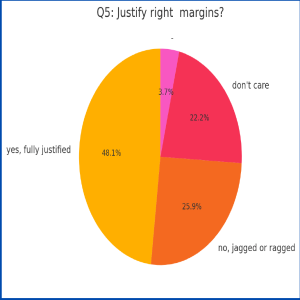Episodes

Sunday Oct 13, 2024
Sunday Oct 13, 2024
Listen to this NotebookLM-generated episode on the first technique in Ross Guberman's bestselling Point Made: How to Write Like the Nation's Top Advocates! And check out BriefCatch to get his expert advice 24-7.
Intros and preliminary statements often falter because lawyers dive straight into complex details without setting the stage. When drafting, always start by answering the "Brass Tacks" questions—who, what, when, where, why, and how. Imagine you're explaining the case to a friend over a drink. Clarity wins cases.For example, instead of overwhelming the court with jargon, take a deep breath and summarize your case like a journalist. It’s not about omitting details, but about making your case understandable and persuasive from the start.✨ Pro tip: The first 140 words should clearly set the stage. Be concise yet compelling .

Tuesday Oct 15, 2024
Tuesday Oct 15, 2024
Number Your Path to Victory: The Power of Thoughtful Lists in Introductions
Ever noticed how top advocates make their arguments irresistibly persuasive? They masterfully use numbered lists in their introductions to lead the reader through their key points. 📝
Why should you embrace this technique?
1️⃣ Focus on Substance: Go beyond generic statements. Instead of saying "the balance of equities favors us," specify why it does.
2️⃣ Enhance Clarity: A well-structured list highlights your main arguments, making it easier for judges (or any audience) to grasp your position quickly.
3️⃣ Drive Persuasion: Specific, numbered reasons are more compelling than broad assertions. They demonstrate thorough thinking and confidence in your case.
Curious about how to implement this in your own writing? 🎙️ Tune into my latest podcast episode where I delve deeper into crafting impactful introductions using thoughtful enumerated lists.
Let's elevate our advocacy by numbering our path to victory!
#LegalWriting #AdvocacySkills #EffectiveCommunication

Wednesday Oct 16, 2024
Wednesday Oct 16, 2024
The Point Made Podcast Series
Why Should I Care? How to Raise the Stakes of Your MotionThe best preliminary statements make judges care about your case. Judges are not just umpires calling balls and strikes—they also care about the real-world effects of their decisions. To raise the stakes of your first paragraphs, ask yourself: “What would keep this judge up at night?” Whether it's the fear of creating unworkable precedents or encouraging bad behavior, lean on pragmatic arguments and common to show why ruling for your client is also the right thing to do.Even discovery battles have real-world practical consequences. Learn here how to up the ante in your motion's first lines.
And while you're at it, for expert legal editing 24/7, try www.BriefCatch.com today!
#LegalWriting #Law #Persuasion #LegalTech #LitigationStrategy

Saturday Oct 19, 2024
Saturday Oct 19, 2024
Draw a Line in the Sand: Sharpening the Stakes of Your IntroIn your preliminary statement, sharpen the key issue clearly and decisively. By using the Flashpoint technique—drawing a clear contrast between two competing viewpoints—you can both simplify the case for the court and goad your opponent into arguing on your client’s terms. Whether it’s a pivotal civil rights case or a corporate dispute, framing the issue sharply can make all the difference. Make sure your argument highlights the core tension, so there’s no doubt about what's at stake.#LegalTech #Litigation #Persuasion

Monday Oct 21, 2024
Monday Oct 21, 2024
The Point Made Podcast Series: Episode 5
Panoramic Shot: A Commanding Fact-Section StartThe opening of your fact section should do more than just list events—it needs to engage and frame the narrative. The Panoramic Shot technique allows you to set the stage, giving the reader a broader context that resonates with your theme. Whether it's a corporate dispute or a civil rights case, use the opening to draw readers into your story, leaving them curious about what’s next.Start with a neutral yet compelling fact that hints at the broader stakes—your readers will thank you for it.#LegalWriting #LitigationStrategy #LegalTech #Persuasion #Law

Monday Oct 21, 2024
Monday Oct 21, 2024
This article from BriefCatch analyzes Justice Kagan's writing style in Ford Motor Company v. Bandemer, identifying seven key elements that contribute to her persuasive writing.
The article highlights her use of narrative techniques, respectful engagement with opposing arguments, varied sentence structures, and direct language. The authors also emphasize Kagan's ability to ground legal concepts in real-world scenarios, making her writing both accessible and impactful. Finally, the article notes her use of two conclusions, reinforcing central themes and leaving the reader with a lasting impression.

Tuesday Oct 22, 2024
Tuesday Oct 22, 2024
Join us for a deep dive into the world of elite legal writing as we explore the insights and opinions of top judges and lawyers, with survey data collected by renowned legal writing expert Ross Guberman. Discover the stylistic choices and preferences that define the writing of these legal giants, from the Oxford comma debate to citation styles, and learn practical tips to refine your own writing habits.
In this episode, we delve into the age-old debate of one space versus two spaces after a period, the importance of the Oxford comma, and the pros and cons of footnotes versus in-text citations. We also tackle the typographical choices of justified versus unjustified margins and explore the evolving use of contractions in legal writing.
Explore the controversial Cleaned Up citation format and the potential future of hyperlinking in legal documents. Dive into the pet peeves and favorite stylistic choices of these legal minds, and uncover the words and phrases that make them cringe. Discover how clarity and conciseness remain the guiding principles of effective legal writing, and learn how to apply these insights to your own writing journey.
Tune in for part one of our exploration into the nuances of legal writing, and join us next time as we continue to uncover more about this fascinating craft. Happy writing!

Wednesday Oct 23, 2024
Wednesday Oct 23, 2024
The Point Made Podcast Series
Headliners: The Art of Fact Section Headings
In this episode, we delve into the often-overlooked art of crafting persuasive headings in legal briefs. Join us as we explore how legal titans like Steve Susman and Seth Waxman transform headings into silent advocates for their cases, creating compelling narratives that captivate judges.
Discover the secrets behind using fact-based headings to build a narrative, and learn how present tense verbs can add immediacy and engagement to your writing. We'll examine how shorter, punchy phrase-like headings can convey a lot of information concisely, and the importance of consistency throughout your brief.
Uncover how strategically crafted headings can subtly frame issues in your favor, guiding a judge's attention to the key aspects of your argument. Whether you're a seasoned litigator or a law student, this episode offers valuable insights and techniques to elevate your legal writing and increase your chances of success in the courtroom.

Tuesday Oct 29, 2024
Tuesday Oct 29, 2024
Welcome to an intriguing episode of The Deep Dive, where we explore a surprisingly heated debate in the legal world: one space or two after a period. This seemingly minor typographical choice has sparked real controversy among legal professionals. Join us as we uncover the preferences of top legal minds, from lawyers to judges, and provide insights from a fascinating survey of legal writing advisory panels. Discover how this debate reflects broader changes in legal writing, influenced by generational divides and influential style guides like the Chicago Manual of Style. Learn about the impact of technology on legal communication and how courts are responding to these shifts. From the subtle preferences of the U.S. Supreme Court to the steadfast rules of the U.S. Court of Appeals for the Seventh Circuit, we'll explore how this issue is playing out in the legal system. Whether you're a one-spacer or a two-spacer, find out why clarity and consistency are key in the ever-evolving world of legal writing. Tune in for an engaging discussion that reveals how something as small as a space can uncover significant insights into the legal profession. Stay adaptable, stay informed, and join us on this fascinating journey through the great spacing debate.

Wednesday Oct 30, 2024
Wednesday Oct 30, 2024
The BriefCatch Podcast: Oxford Comma Wars
In this episode of Deep Dive, we explore the seemingly simple yet surprisingly controversial topic of the Oxford comma. While often debated among grammar enthusiasts and lawyers alike, the implications of this punctuation mark extend far beyond stylistic preferences, especially in the legal realm.
We delve into fascinating research conducted by legal writing expert Ross Guberman, who surveyed top judges and lawyers about their stance on the Oxford comma. Discover how the support for this tiny punctuation mark has grown significantly, with 81% of judges now advocating for its use.
Learn about the infamous O'Connor v. Oakhurst Dairy case, where the absence of an Oxford comma led to a $5 million legal battle, highlighting the importance of clarity in legal documents. We break down the arguments for and against the Oxford comma and discuss its role in preventing ambiguity and ensuring precision in legal writing.
Whether you're a legal professional or simply curious about grammar, this episode reveals why the Oxford comma is more than just a stylistic choice—it's a crucial element in avoiding costly misunderstandings. Join us as we uncover the dramatic impact of the Oxford comma in the world of law.


